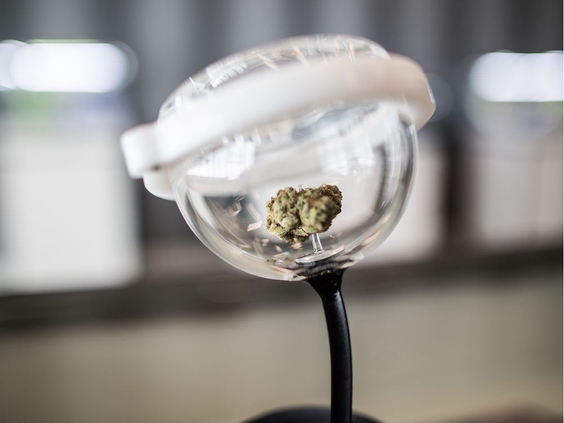You are here
Home 🌿 Recreational Marijuana News 🌿 Alberta legal cannabis sales to exceed half billion dollars this year: analyst 🌿Alberta legal cannabis sales to exceed half billion dollars this year: analyst

Sales of legal cannabis in Alberta should climb to $540 million this year on monthly revenues that have more than doubled since 2019, says an industry analyst.
But with Alberta reaching a retail saturation point with nearly half the pot stores in the country, those numbers aren’t expected to increase much more in the foreseeable future, said Het Shah, Calgary-based managing director of Cannabis Benchmarks.
And they’re not expected to significantly reduce the provincial government’s forecast of continued red ink on the cannabis side of its taxation ledger.
“The net income from cannabis sales is expected to remain negative as setup, administration and inventory costs exceed revenue,” Alberta Treasury and Finance spokeswoman Jerrica Goodwin said in an email.
The province is now forecasting a $30-million loss on cannabis for 2020-21, though higher wholesale volumes and cost savings have cut that from an initially expected $36 million, she said.
Even so, sales through private retailers and regulator Alberta Gaming, Liquor and Cannabis’ online portal should reach $540 million for 2020, showing the legal sector is taking an increasing bite out of the illicit market that still maintains a strong presence, said Shah.
“This is a positive sign for regulators and market participants who are looking for the legal cannabis system to take a bigger chunk out of the illicit trade,” states Shah’s latest market report, which uses Statistics Canada data.
Ontario, with a population more than three times the size of Alberta’s but with fewer than 200 stores, should have 2020 sales of $645 million, said the Cannabis Benchmarks report.
Those rising Alberta earnings are driven mainly by a proliferation of stores — 524 have been approved by the AGLC.
It’s seen monthly sales figures in the sector go from just under $20 million in June 2019 to nearly $47 million a year later — and should hit $51.3 million in December, said Shah.
But that brings into play the law of diminishing returns in a province with 12 per cent of the nation’s population but 48 per cent of its cannabis stores, he said.
“It’s a very big disconnect with the rest of the country,” said Shah.
“Every store that opens up takes sales from other stores — it’s more of a plateauing effect.”
That revenue pie should become even more fractured if the AGLC’s recent store approval pace continues, which would translate to 600 stores by year’s end, he said.
Many in the industry say illicit sellers, many of whom operate glossy websites with a wide variety of products, still control the lion’s share of the market.
One Calgarian who frequently orders from illicit websites said he sees no reason to purchase legally.
“There’s about 100 delivery (services) for Calgary, it’s a better marketplace and they come right to my door,” said Gary, not his real name.
“I don’t go to the stores because they’re expensive and the quality is dubious — it doesn’t interest me.”
But Gary said he hopes Canada’s experiment in legal recreational cannabis succeeds “because the world is watching.”
While the AGLC supplies online cannabis orders by mail, the private retail industry is barred from making curbside deliveries.
Shah said wholesale prices on the legal market have fallen almost $2 per gram since pot became legal nearly two years ago, making the sector more competitive with the black market.
Common discounts and a much wider variety of products, which includes vapes, beverages, edibles and other derivatives, have had the same effect, he said.
420 Intel is Your Source for Marijuana News
420 Intel Canada is your leading news source for the Canadian cannabis industry. Get the latest updates on Canadian cannabis stocks and developments on how Canada continues to be a major player in the worldwide recreational and medical cannabis industry.
420 Intel Canada is the Canadian Industry news outlet that will keep you updated on how these Canadian developments in recreational and medical marijuana will impact the country and the world. Our commitment is to bring you the most important cannabis news stories from across Canada every day of the week.
Marijuana industry news is a constant endeavor with new developments each day. For marijuana news across the True North, 420 Intel Canada promises to bring you quality, Canadian, cannabis industry news.
You can get 420 Intel news delivered directly to your inbox by signing up for our daily marijuana news, ensuring you’re always kept up to date on the ever-changing cannabis industry. To stay even better informed about marijuana legalization news follow us on Twitter, Facebook and LinkedIn.




